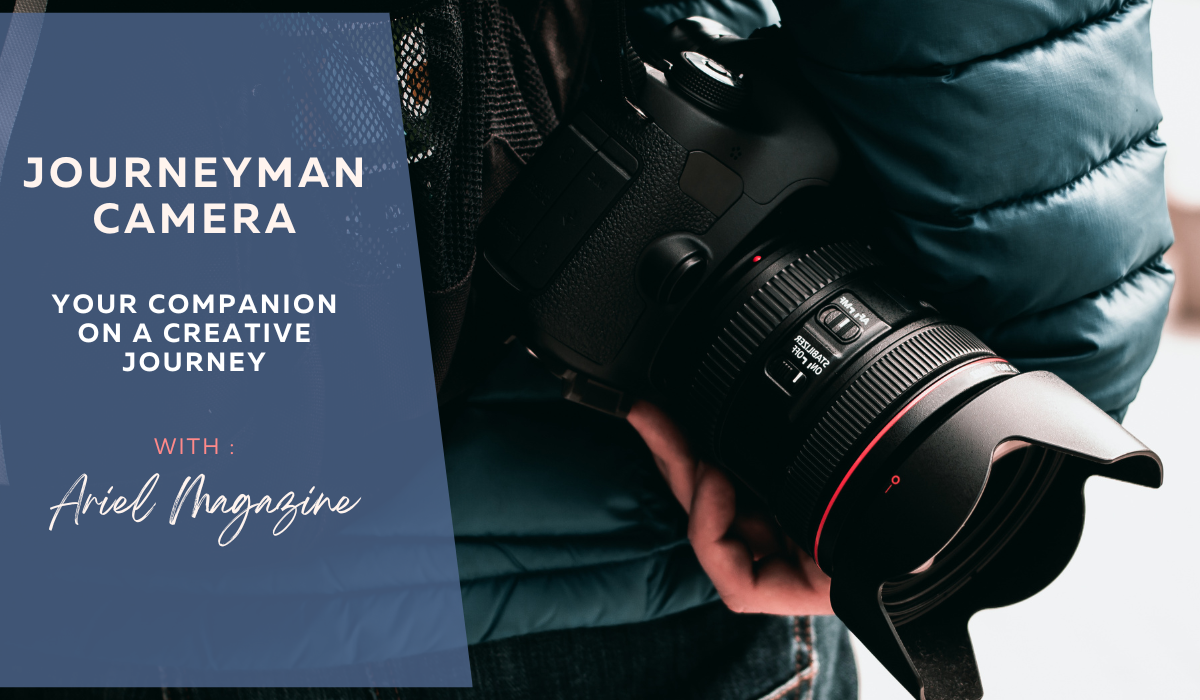Accessories
The Journeyman Camera: Your Companion on a Creative Journey

Photography is more than a skill; it’s a medium for storytelling, exploration, and capturing fleeting moments that make life extraordinary. If you’ve heard of the “Journeyman Camera,” you might wonder what it is. Is it a specific type of camera, a brand, or something entirely different? Let’s dive into this concept and uncover why the Journeyman Camera holds a unique place in the world of photography.
What is the Journeyman Camera?
The Journeyman Camera isn’t a brand or a particular model; instead, it’s a concept that resonates with photographers who value reliability, versatility, and skill over flashy features or expensive equipment. Drawing inspiration from the term “journeyman” in the medieval guild system—where craftsmen were skilled yet still honing their expertise—a journeyman camera symbolizes a dependable tool that supports photographers on their creative path.
It’s not about having the fanciest gear, but about having equipment that empowers you to capture stunning images, regardless of your experience or the challenges of the environment.
The Essence of the Journeyman Camera
The idea behind the journeyman camera is rooted in adaptability and practicality. Here’s what makes it unique:
1. Reliability Over Luxury
A journeyman camera might not boast the most advanced features, but it delivers consistent, high-quality results. It’s about having a tool that works effectively in any situation, from bustling city streets to serene natural landscapes.
2. Versatility for Every Situation
This camera represents a wide range of tools, from compact point-and-shoots to rugged DSLRs. Its defining trait is its ability to adapt, allowing photographers to excel in diverse scenarios, whether shooting in low light, fast-paced environments or while experimenting with creative techniques.
3. Focus on Skill
The term “journeyman” reflects the journey of a photographer. It’s less about what’s in your hands and more about the expertise and creativity you bring. A journeyman camera becomes an extension of your vision.
Why the Journeyman Camera Matters
The journeyman camera isn’t just a piece of equipment—it’s a philosophy. It encourages photographers to embrace exploration, improve their craft, and rely on tools that support their growth. Here’s why it matters:
1. Encourages Creativity
Photographers can focus on composition, lighting, and storytelling without being distracted by excessive features. This simplicity allows creativity to flourish.
2. Teaches Adaptability
The journeyman camera teaches you to work with what you have in a world where perfect conditions are rare. It becomes a partner in learning to overcome technical or environmental challenges.
3. Accessible for All Levels
The journeyman camera is ideal for beginners learning the art of photography while still catering to seasoned professionals who appreciate dependable tools.
Key Features of the Journeyman Camera
A “journeyman camera” can include a variety of models with the following features:
1. Manual Controls
For those who enjoy hands-on photography, manual settings allow you to adjust the aperture, shutter speed, and ISO to craft your perfect shot.
2. High-Quality Sensors
Sharp, detailed images are a hallmark of these cameras, even in challenging conditions.
3. Interchangeable Lenses
From wide-angle lenses for landscapes to telephoto lenses for wildlife, the flexibility of changing lenses broadens creative possibilities.
4. Compact and Durable Design
A journeyman camera is often lightweight and sturdy, designed to handle the demands of photographers who are always on the move.
5. Affordability Without Compromise
While high-end cameras come with a hefty price tag, journeyman cameras strike the perfect balance between quality and affordability, making them accessible to a broader audience.
The Journey with a Journeyman Camera
Photographers using a journeyman camera are on a journey—learning, growing, and refining their skills. This is the way you can take advantage of your experience:
- Practice Continuously: The beauty of photography lies in the process. Experiment with different settings, techniques, and perspectives to discover your unique style.
- Explore New Horizons: Take your journeyman camera wherever you go. Its reliability and adaptability make it ideal for capturing everything from urban landscapes to nature’s grandeur.
- Embrace Challenges: Low light? Fast-moving subjects? Unfavorable weather? Instead of seeing these as obstacles, use them as opportunities to learn and improve.
- Focus on Storytelling: The true magic of photography is in the stories it tells. Focus on the emotions, narratives, and perspectives you want to share through your images.
Why the Journeyman Camera Brings Joy
In an industry that often prioritizes expensive, feature-packed equipment, the journeyman camera reminds us that photography is about more than just gear. It’s about passion, creativity, and the journey of learning.
The journeyman camera brings happiness because it simplifies the art of photography. It empowers you to create without distractions, connect with the moment, and capture resonating images. It’s not just about the final picture but the joy of the process itself.
Conclusion
The Journeyman Camera isn’t defined by brand names or cutting-edge specifications but by its spirit. It’s about your journey as a photographer, the memories you create, and the skills you refine.
So, the journeyman camera will support your vision, whether you’re capturing the glow of a sunset, the vibrancy of a bustling market, or the quiet beauty of a rainy afternoon. It’s not just a tool; it’s your trusted companion on the path of creativity and discovery.
Pick up your journeyman camera, enter the world, and let the adventure begin! 📸
FAQs about Cameras and Camera Operation
Q1: Is the camera operator hard?
Becoming a camera operator can be challenging, requiring a blend of technical expertise, creativity, and attention to detail. You must master camera settings, framing, and movement while adapting to various filming environments. However, with practice and dedication, many find it an enjoyable and rewarding career.
Q2: What is the difference between entry-level and professional cameras?
Entry-level cameras are designed for beginners, offering simplified features, user-friendly interfaces, and lower price points. On the other hand, professional cameras come with advanced controls, larger sensors, higher resolution, and the ability to use specialized lenses and accessories, making them ideal for skilled users.
Q3: How do I become a camera operator without a degree?
While a degree in film or media can be helpful, becoming a camera operator is not mandatory. You can gain experience through internships, on-the-job training, or self-learning by experimenting with cameras, studying online resources, and building a portfolio. Networking and freelance projects can kickstart your career.
Q4: How many years does it take to become a camera operator?
The timeline varies depending on your dedication, resources, and opportunities. Some individuals secure entry-level camera operation roles within a year. In contrast, others take several years to gain the experience and technical skills needed for higher-level positions. Continuous practice and learning are key.
Q5: What is the difference between a cameraman and a camera operator?
While often used interchangeably, “cameraman” is a general term referring to anyone handling a camera, including amateurs. However, a “camera operator” usually refers to a professional responsible for capturing high-quality footage as part of a production team.
Q6: What is the camera position level?
Camera position level refers to the height and angle at which a camera is positioned during filming. Depending on the desired effect and storytelling requirements, it can range from high angles, low angles, eye-level shots, or dynamic movements.
Q7: What makes a camera professional grade?
A professional-grade camera typically has advanced features like larger sensors for better image quality, customizable manual controls, rugged construction, support for high-end lenses, and the ability to shoot in uncompressed formats or RAW. These cameras are built for high performance in demanding environments.
